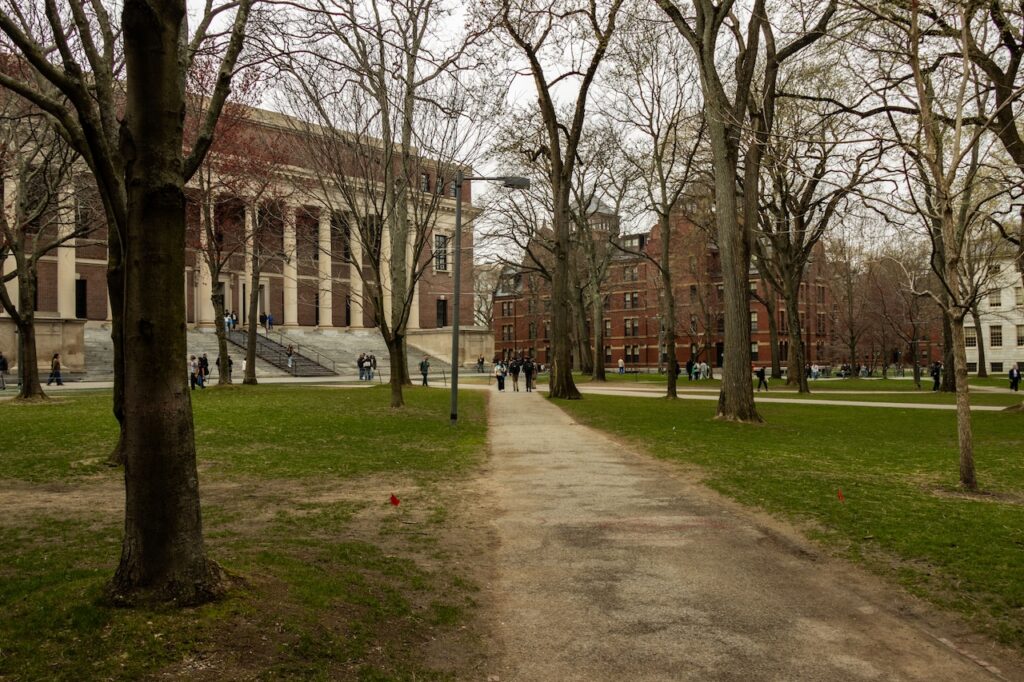The aftermath of the Oct. 7, 2023, attacks in Israel, Jewish and Israeli Harvard University students and faculty felt shunned and silenced, regardless of which side they supported, according to a report released this week.
Harvard’s Presidential Task Force on Combating Antisemitism and Anti-Israeli Bias found that during the 2023-2024 school year, when protests and tension roiled the university campus, Jewish and Israeli members of the Harvard community kept quiet during discussions of current events, and some hid their identity entirely.
Read more: ‘My face was on the … truck’: Harvard report details climate of fear for pro-Palestine students
Those who didn’t, lost friends and were kept out of social circles, sometimes explicitly because of their identity or beliefs, according to the report.
“I feel lucky I don’t look Jewish,” one undergraduate student told the task force. “I know if I do the ‘wrong thing’, I might get the antisemitism. So, put your headphones in, make sure you’re not outwardly Jewish, and just walk to class.”
The report was released Tuesday, at the same time that the corresponding Task Force on Combating Anti-Muslim, Anti-Arab and Anti-Palestinian Bias published its findings.
Read more: Feds launch racial discrimination investigations targeting Harvard Law Review
A Harvard-wide survey of Jewish students found that 67% of those who responded were uncomfortable expressing their opinions, and 73% felt uncomfortable expressing their political opinions, according to the report.
Jewish students reported being told by peers and faculty that “they were associated with something offensive, and, in some cases, that their very presence was an offense.” Others told the task force they were repeatedly asked if they were “one of the good ones” who did not support Israel.
In some cases, students who spoke to the task force said they had avoided taking certain classes because the professor had expressed anti-Zionist views — opposition to a Jewish state. Or they dropped classes because they felt pressured or targeted during discussions about the conflict.
Read more: Harvard renames its DEI office, conceding on Trump demand
The report included multiple accounts from Jewish and Israeli students who were told that other students would not associate them, whether or not they had expressed support for Israel. Their non-Jewish, non-Israeli friends, too, reported being excluded simply because of their association.
In particular, Israeli students and those of Israeli descent felt that their nationality made them targets. Some students described having other students end conversations immediately upon learning of their connections to Israel.
Others said they were immediately labeled as Zionist, genocidal, murderers or as Israeli soldiers, due to the country’s conscription requirement for all citizens.
Read more: Harvard changes admissions policy, offering foreign students a ‘backup plan’
In one case, a few years before the Oct. 7 attacks, an Israeli student was assigned a partner for a group project, and their partner requested a new group due to their own political beliefs, according to the report. The task force was told that the professor granted the request.
“The social exclusion and shunning of Israeli students lies at the core of the Harvard experience for many,” one Israeli undergraduate student told the task force. “From my first days on campus, I noticed students in pre-orientation avoiding conversation with me, simply out of fear of being associated with an Israeli … Israeli students at Harvard are not merely subjected to implicit bias but instead face explicit, deliberate discrimination.”
For anti-Zionist Jewish students and staff, in addition to experiencing antisemitism, they described feeling ostracized from Jewish spaces for their beliefs. According to the report, in many Jewish student groups and organizations, “support for Israel seemed assumed or even demanded.”
“The largest form of antisemitism I have experienced has been from other Jewish students who are interested in policing the bounds of Jewish identity one way or the other,” one student said.
Antisemitism task force recommendations
The recommendations from the task force on antisemitism and anti-Israeli bias include:
Harvard should clarify its values through a statement that antisemitism and anti-Israeli bias — along with Islamophobia, anti-Arab bias, racism, misogyny, homophobia or transphobia — are forms of hatred that have no place within the Harvard communityAct against discrimination, bullying, harassment and hateImprove disciplinary processes, such as striving for consistency in disciplinary cases and engaging in follow-up after complaints and consistency in disciplinary cases.Implement education and training on antisemitism, including orientation for new students, student organization leaders, peer advising fellows and residential undergraduate supervisors.Foster constructive dialogue on difficult subjects, including high-profile talks between people who disagree on controversial issues respectfully, and an award for a community member combating antisemitism.Support Jewish life on campus, such as through kosher hot lunches, pork products being marked and staff providing reasonable accommodation for staff and students.
The task force emphasized that the opportunity for free speech was imperative for all members of the Harvard community to feel comfortable at the university.
“The State of Israel, like other nations, engages in behaviors that members of our community may find objectionable, even deplorable, and students and others have the right to say as much,” the task force wrote. “However, ‘criticism’ does not justify intimidation, exclusion, bullying or harassment of members of our community.”


